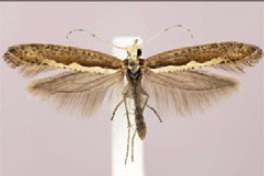April 4, 2014, by Sarah Hartley
Moving Responsible Innovation Upstream: GM insects and the exclusion of alternatives
‘Responsible innovation’ was the focus of an earlier post by a colleague of mine, Sujatha Raman, who argued that the concept needs to be linked to a range of policy mechanisms to become more ‘policy relevant’. I’d like to explore this idea further. While framed as a concept that has the potential to shape the direction of technology in a way that increases its ability to address societal challenges and policy problems, responsible innovation remains focused on technological innovation to the exclusion of policy alternatives.
One of my areas of research is genetically modified (GM) insects for agricultural production (as opposed to the GM mosquito which is being developed to manage human health problems such as malaria and dengue). GM agricultural insects have been tested in field trials in the USA (the GM bollworm) and are likely to be the first GM animal to pass through the EU’s environmental risk assessment framework for release of GM animals into the European environment, which was established in 2013. For example, an application to release a GM olive fly was submitted last year to Spanish authorities under EU law, although the Spanish authority declined the application, asking for more information on the risks. And in the UK, initial inquiries were made in 2011 to the Health and Safety Executive about an experimental open release of GM diamondback moths in the British agricultural environment under the Contained Use Regulations. Again, regulators asked for more information on the risks.
GM agricultural insects have been developed as a pest management tool – they mate with non-GM insects and their offspring die before reaching maturity. The specific technology is RIDL (Release of Insects Containing a Dominant Lethal) which was developed by a British company, Oxitec Ltd, a ‘spin off’ from Oxford University. The idea is to release millions of GM insects into the agricultural environment and wipe out the next generation, and in this way manage the threat of insect pests and protect economically valuable agricultural crops such as cotton, olives, maize, fruit, cabbages, canola, etc.
Steering the innovation process to address societal challenges
As René von Schomberg points out in his chapter of Owen, Bessant and Heintz’s book on Responsible Innovation, one of the key ideas to emerge from the Lund Declaration is that the innovation process should be steered toward societally-beneficial objectives, particularly society’s ‘grand challenges’. At both the EU and UK level, the framework of responsible innovation has been employed to this end. The idea is to open up policy-making to allow the public and stakeholders to shape the direction of technology and innovation through ‘upstream engagement’ processes so that it better reflects the public interest and addresses societal /policy challenges.
A responsible innovation approach to GM agricultural insects would allow publics and stakeholders, through upstream engagement, to steer the direction of this technology to increase its public value. This is a laudable goal. But there’s little room for discussion of the policy alternatives to GM insects in terms of broader agricultural policy. There’s an assumption that technology is ‘good’ – it’s a solution looking for a problem.
A shift in discourse has been identified from ‘responsible innovation’ to ‘responsible governance’, but the focus remains on the technology or innovation being governed. There is still an assumption that innovation is the only or primary path to solving societal challenges and policy problems, and innovation is narrowly defined as technology with links to industrialised agri-systems and global markets.
There are clearly policy challenges involved with agriculture that include environmental protection and food security. GM insects may or may not play a role in addressing these challenges, but they need to be considered alongside alternatives that may not follow a technological path such as agroecological options. In this sense, responsible innovation may need to move ‘upstream’ in the policy process and include a broader understanding of innovation that includes non-technical forms of innovation. This may be stretching the concept too far and asking it to do something it wasn’t designed to do but at this early stage, as the concept takes shape, it’s worth asking these questions and reflecting on the role of technology in our society vis-à-vis alternatives.
Sarah Hartley is Research Fellow in the Leverhulme Making Science Public Programme, University of Nottingham. She is investigating governance of emerging technologies with a focus on GM insects. This post was prompted by her participation in a British Council and FAPESP ‘Researcher Links’ workshop on ‘Responsible Innovation and the Governance of Socially Controversial Technologies’ at UNICAMP, in Campinas, Brazil. The workshop, organised by Jack Stilgoe and Phil Macnaghten, was designed to explore the challenges and opportunities of transferring the concept of Responsible Innovation to Brazil, a country with a very different political economy and political culture.
Note: This post is part of a series of blogposts for a policy thought-leadership project on Responsive Research supported by Sciencewise-ERC. Sciencewise-ERC is not responsible for the content of any of the views expressed here.


[…] a series of blog posts dealing with responsive research and RRI. Sarah Hartley wrote about GM insects, Danielle Gent about energy for all, Alison Mohr about making energy research more responsive, and […]